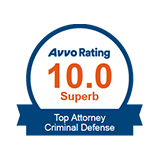Is Your Child Facing Criminal Charges in Texas?
Few experiences shake a parent like hearing that their child has been arrested. When law enforcement and the court system step in, it feels like everything is happening at once—fast, confusing, and out of your control. If your son or daughter has been accused of a crime in Frisco or anywhere in Collin or Denton County, you need answers and support, not vague legal jargon.
At Whalen Law Office, our team works closely with families to protect the futures of young people caught in the juvenile justice system. Our Frisco juvenile criminal defense lawyers provide strong, strategic representation aimed at reducing the damage a criminal charge could have on your child’s life. We handle each case with care, commitment, and a focus on getting the best outcome possible.
If your child has been charged, don’t wait. Call our office today at (214) 368-2560 to schedule a private, no-obligation consultation. We’ll explain your options and help you take the next steps with confidence.
Table of Contents
- What Does A Juvenile Defense Attorney Do?
- Texas Juvenile Criminal Justice System Statistics
- What Are The Most Common Juvenile Crimes?
- What Are The Penalties For Juvenile Crimes In Texas?
- Which Juvenile Crimes Can Result In The Juvenile Being Tried As An Adult?
- How Can An Unwarranted Search Impact Juvenile Criminal Charges?
- What To Do If Your Child Gets Arrested
- How A Juvenile Defense Attorney From Whalen Law Office Can Help
- Why Choose Us To Defend Your Child
- Contact Our Experienced Texas Juvenile Defense Attorneys Now
What Does A Juvenile Defense Attorney Do?
A juvenile defense attorney protects the legal rights of minors charged with criminal offenses. Unlike adult defendants, juveniles go through a separate court system, which has its own rules, procedures, and possible outcomes. That system is designed to rehabilitate, but that doesn’t always happen without legal pressure from someone fighting for the child.
Your child’s defense lawyer will:
- Review the charges and evidence for any legal issues
- Push back against unlawful arrests, coerced confessions, or unreasonable searches
- Negotiate with prosecutors to reduce or dismiss charges when possible
- Represent your child at detention hearings, adjudication, and disposition
- Advocate for alternatives to incarceration, like diversion programs or probation
- Work to keep your child’s record sealed and future opportunities intact
Minors can easily make mistakes or get swept up in something they didn’t fully understand. That doesn’t mean they should carry the weight of a criminal record for the rest of their life.
Texas Juvenile Criminal Justice System Statistics
 Texas operates one of the largest juvenile justice systems in the country. According to data and statistics from the Texas Juvenile Justice Department (TJJD), tens of thousands of youth come into contact with the system each year. In the most recent fiscal year:
Texas operates one of the largest juvenile justice systems in the country. According to data and statistics from the Texas Juvenile Justice Department (TJJD), tens of thousands of youth come into contact with the system each year. In the most recent fiscal year:
- Over 42,000 referrals were made to juvenile probation departments across Texas
- Roughly 60% of those referrals involved misdemeanor offenses
- Males accounted for nearly 73% of all juvenile arrests
- The majority of youth referred were between the ages of 15 and 17
- Over 90% of referrals were resolved at the county level, not through state commitment
These numbers tell only part of the story. Many cases involve kids who’ve never been in trouble before. Others involve youth who struggle with trauma, behavioral disorders, or home instability. Legal representation often makes a meaningful difference in how their stories unfold.
What Are The Most Common Juvenile Crimes?
Young people make mistakes. Sometimes those mistakes bring them into contact with law enforcement. In Frisco and across Texas, juvenile courts handle a wide range of offenses, but certain charges show up more often than others. These common offenses range from minor infractions to serious accusations that carry long-term consequences if not addressed properly.
Some of the most frequently charged juvenile offenses in Texas include:
Theft and Shoplifting
Stealing from a store, a classmate, or even a family member often results in juvenile theft charges. In many cases, a juvenile gets caught shoplifting low-cost items or taking something on a dare. Even when the value of the item is small, the legal system still treats it seriously. Repeat offenses or theft involving more valuable items can result in upgraded charges.
Assault and Fighting
Disagreements at school, at parties, or on social media sometimes lead to physical altercations. If a minor punches, kicks, or otherwise causes injury to another person, they may be charged with assault. In Texas, even school fights can lead to criminal charges depending on the circumstances. Courts often consider intent, history, and the extent of injuries when evaluating these cases.
Drug Possession
Possessing illegal substances like marijuana, THC cartridges, or prescription medications without a valid prescription is a common cause for juvenile arrest. Many of these cases involve small amounts, but that doesn’t always prevent serious charges—especially when controlled substances or drug paraphernalia are involved. In some cases, possession of THC concentrates can result in felony charges.
Vandalism and Criminal Mischief
Spray painting buildings, breaking windows, or damaging personal property falls under the category of criminal mischief. These cases often stem from pranks or acts of rebellion that go too far. Texas law assigns penalties based on the dollar amount of the damage. Even if the act wasn’t malicious, the legal consequences can be significant.
Disorderly Conduct
Loud arguments, using offensive language in public, or engaging in behavior that disturbs others can lead to disorderly conduct charges. No matter the level of the charge, the impact can still affect a young person’s school record or future job prospects.
Truancy and Curfew Violations
Skipping school used to be classified as a criminal offense, but Texas now handles truancy as a civil matter. That said, repeatedly missing school or violating curfew can still draw the attention of juvenile courts. Youths under court supervision who violate curfew conditions may face additional penalties.
Possession of Weapons
Texas law prohibits juveniles from possessing certain weapons, including firearms, switchblades, and other dangerous items. Bringing any kind of weapon to school—whether it’s a pocketknife or a BB gun—can result in arrest, suspension, and possible juvenile court proceedings. School resource officers often take these incidents seriously, even when the minor claims no intent to harm anyone.
Sexual Offenses
Sexual misconduct charges involving juveniles can include anything from indecent exposure to more serious offenses like sexual assault. In many cases, these charges involve consensual activity between minors, but Texas law still allows for prosecution in certain situations depending on the age difference. These cases require sensitive legal handling and can carry heavy long-term consequences, including sex offender registration in some situations.
Underage Drinking and Alcohol-Related Offenses
Minors caught drinking, possessing alcohol, or using a fake ID may be charged with a criminal offense. Driving under the influence—even with a very low blood alcohol content—also triggers separate penalties under Texas’s “zero tolerance” laws for drivers under 21.
Each of these charges can open the door to the juvenile justice system, but they don’t have to define a young person’s future. With early legal intervention and the right strategy, many of these cases can be resolved in ways that minimize harm and preserve opportunities for education, employment, and growth.
What Are The Penalties For Juvenile Crimes In Texas?
 Juveniles aren’t sentenced the same way as adults, but they can still face long-term consequences. The court’s primary goal is rehabilitation, but that doesn’t mean the process is lenient or forgiving.
Juveniles aren’t sentenced the same way as adults, but they can still face long-term consequences. The court’s primary goal is rehabilitation, but that doesn’t mean the process is lenient or forgiving.
Penalties may include:
- Deferred prosecution: A kind of informal probation without an adjudication
- Formal probation: Supervised terms with court-imposed conditions like school attendance, counseling, or community service
- Juvenile detention: Short-term confinement in a local facility, typically during the legal process
- Commitment to TJJD: Placement in a state-run juvenile facility, sometimes until the youth turns 19
- Fines, restitution, or community service: Additional penalties depending on the offense
The stakes go beyond court-imposed punishments. A juvenile record can limit a young person’s college, military, or job opportunities. That’s why every case deserves careful attention and a defense built to protect the future.
Which Juvenile Crimes Can Result In The Juvenile Being Tried As An Adult?
Some charges lead prosecutors to seek what’s called a certification to stand trial as an adult. If granted, juvenile certifications transfer the case from juvenile court to the adult criminal system. That changes everything—from sentencing exposure to public records and prison time.
Juveniles 14 or older may be certified for adult court if accused of:
- First-degree felonies like aggravated robbery or aggravated assault
- Violent crimes such as murder, attempted murder, or sexual assault
- Repeat felony offenses, especially if the juvenile has been in trouble before
Certification isn’t automatic. Prosecutors must request it, and the judge must hold a hearing to decide whether the transfer is appropriate. A strong legal defense can help prevent that transfer and keep the case in juvenile court, where options for rehabilitation are more likely.
How Can An Unwarranted Search Impact Juvenile Criminal Charges?
 The Fourth Amendment protects everyone, including minors, from unreasonable searches and seizures. However, in practice, police sometimes search a student’s backpack, car, or phone without proper cause—or pressure a confession without a guardian present.
The Fourth Amendment protects everyone, including minors, from unreasonable searches and seizures. However, in practice, police sometimes search a student’s backpack, car, or phone without proper cause—or pressure a confession without a guardian present.
If law enforcement violated your child’s constitutional rights, that could:
- Lead to the suppression of evidence, such as drugs or weapons
- Strengthen your child’s defense and reduce the chance of a conviction
- Expose misconduct that shifts the entire direction of the case
For example, if a school resource officer searched a locker without a clear legal basis or probable cause, any evidence found might not be admissible in court. These details can have a major impact on the outcome. A defense attorney should review every aspect of the arrest and investigation for potential rights violations.
What To Do If Your Child Gets Arrested
A call from the police or school about your child being in custody stops everything in its tracks. In that moment, what you do next matters.
Here’s how to respond:
- Stay calm and respectful when speaking with officers or officials
- Ask where your child is being held and what the charges are
- Tell your child not to answer any questions without a lawyer present
- Don’t let your child sign anything until you’ve spoken to an attorney
- Contact a juvenile defense lawyer immediately
Children often say things that hurt their case without even realizing it. Police may record interviews or use written statements as evidence later. Getting legal help early limits that risk and gives your family a better chance at a fair outcome.
How A Juvenile Defense Attorney From Whalen Law Office Can Help
 At Whalen Law Office, we treat every juvenile case as a high priority because we understand what’s at stake. One mistake shouldn’t define your child’s life. That’s why we take the time to dig into the details—looking at what really happened, how law enforcement handled the case, and what options exist for dismissal or alternative resolution.
At Whalen Law Office, we treat every juvenile case as a high priority because we understand what’s at stake. One mistake shouldn’t define your child’s life. That’s why we take the time to dig into the details—looking at what really happened, how law enforcement handled the case, and what options exist for dismissal or alternative resolution.
When you work with us, you’ll get:
- A full case review with honest feedback about possible outcomes
- An experienced trial attorney who’s handled juvenile and adult criminal cases
- A firm that takes time to listen and explain each step clearly
- Strong advocacy in and out of court, including plea negotiations or motions to suppress
- Strategies focused on long-term impact—not just short-term solutions
We work to keep your child out of detention, off probation when possible, and away from a lifelong criminal record.
Why Choose Us To Defend Your Child
 Every family deserves a defense team that sees the whole picture—not just the police report. Before you choose an attorney, consider what makes a legal team worth trusting with your child’s future.
Every family deserves a defense team that sees the whole picture—not just the police report. Before you choose an attorney, consider what makes a legal team worth trusting with your child’s future.
We offer more than courtroom representation. We stand beside you from the first phone call through every hearing and final resolution. Our firm’s approach centers on three key values:
Commitment to Families
We know how stressful this process can be. Parents often feel powerless, and kids feel scared. We work with both, helping your family move forward with dignity and support.
Clear, Straightforward Advice
We don’t believe in legal double-speak. You’ll always know where your child’s case stands and what’s coming next. We walk you through options and answer your questions in plain English.
Focused, Strategic Defense
We tailor our defense to your child’s unique situation. That means factoring in age, background, the strength of the evidence, and available alternatives to detention. Our goal is to protect your child’s future—not just win the case.
Contact Our Experienced Texas Juvenile Defense Attorneys Now
A criminal charge doesn’t have to derail your child’s life. The right legal help can make all the difference. At Whalen Law Office, we fight hard to protect your child’s record, freedom, and future.
If your son or daughter has been accused of a crime in Frisco or the surrounding area, don’t wait to get legal help. Contact us now for a confidential consultation with a Frisco criminal defense attorney. We’ll give you the answers you need and the support your family deserves.
Whalen Law Office – Frisco Location
9300 John Hickman Pkwy #501
Frisco, TX 75035
P: (214) 368-2560





